The number of international students enrolled in Japanese universities and vocational schools is on the rise. In May 2019, this number stood at 312,214, up from 164,000 in 2011, and the number of students who chose to work in Japan after graduating has more than doubled since 2013.
Supporting this influx of international students and bolstering initiatives to make their lives easier is a network of universities, vocational and language schools.
On Sept. 26, the Association for the Promotion of Japanese Language Education hosted its annual Japan Ryugaku (study abroad) Awards to recognize the educational institutions that went above and beyond in their initiatives.
The Association for the Promotion of Japanese Language Education launched the Japan Ryugaku Awards in 2012 to boost the number of international students in the wake of the Great East Japan Earthquake and tsunami in March 2011. At that time, many students at Japanese language schools returned to their home countries. Since then, Japanese language schools have selected award recipients based on numerous criteria. Providing easy-to-understand materials, establishing separate tracks for international students, simplifying application procedures and developing support systems to help students find jobs in Japan are among the factors considered.
By establishing criteria to assess institutions’ accommodations for international students, the association hopes to provide a framework that schools and universities can use to improve their learning environments.
This year marked the ninth Japan Ryugaku Awards ceremony, which was held online out of consideration for social distancing guidelines related to the coronavirus pandemic. The ceremony was attended by faculty and staff of universities and Japanese language schools, as well as affiliated business representatives.
This year, 176 Japanese language schools submitted 469 votes to select 50 institutions across five categories: vocational schools, private liberal arts departments, private science departments, public universities and graduate schools. Ten institutions separated into “west Japan” and “east Japan” divisions were awarded within each category. A grand prize was awarded to one institution in each division. Award-winning schools were recognized for their support for international students, educational content, excellence in their screening system and readiness to accept international students among other points.
Tokyo International Business College received the east grand prize in the vocational school category and Ehle College, the corresponding west grand prize. In the category for private liberal arts departments, Takushoku University received the east grand prize, while the west grand prize went to the University of Marketing and Distribution Sciences. In the category for private science departments, Tokyo University of Science received the east grand prize and Kindai University, the west grand prize. Yokohama University received the east grand prize in the national university category and Kobe University, the west grand prize. Lastly, in the graduate school category, Yokohama National University received the east grand prize and Ritsumeikan University, the west grand prize.
In addition to acknowledging the achievements of vocational schools and universities, the Japan Ryugaku Awards present an opportunity to address issues concerning international students. One aspect touched upon at this year’s ceremony was the coronavirus pandemic’s effects on the internationalization of Japan’s education.
The pandemic has severely disrupted Japanese-language schools, which play an important role in preparing students to enroll in vocational schools and universities. According to surveys conducted by Japanese language schools, approximately 35,000 students could not enter the country to participate in courses that commenced in April and July. The Japan Student Services Organization suggests this figure is nearly half the number of students enrolled in all language schools as of May 2019 — 83,811.
Although the government eased travel restrictions for international students from October, it remains to be seen how immigration procedures will affect enrollment. Furthermore, the economic fallout of the pandemic may force prospective students to cancel their plans to study in Japan.
Language schools are a major part of the educational ecosystem for international students. School staff are intimately aware of enrollment procedures for universities and vocational schools and guide students through the application submission process, making them uniquely qualified to select recipients of the Japan Ryugaku Awards. Therefore, the pandemic’s impact on language schools will, have far-reaching effects on the internationalization of education in Japan.
Another area of concern is the pandemic’s effect on student motivation. The Japanese Language Proficiency Test (JLPT) and the Examination for Japanese University Admission for International Students (EJU) were both scheduled to occur in June, but were canceled. Many students are worried they will not be able to sufficiently improve their language abilities to enroll in a university or vocational school.
Generally, prospective students must pass level N2 of the JLPT before entering a program conducted in Japanese. But some educators observe that students who have passed this exam may still have trouble understanding their instructors and classmates. Japanese language schools generally teach their curriculum over two years. Still, students from different regions sometimes find themselves at entirely different levels by the end of the curriculum. Students from China and Korea typically demonstrate a greater success rate due to their prior knowledge of kanji.
These factors, compounded by the dramatic decrease of inbound students and the JLPT’s cancellation, which many vocational schools and universities use to evaluate prospective students’ language abilities, have forced institutions to adjust their admissions procedures. In place of examination certifications, some institutions are referring to students’ performance at their respective language schools and conducting online assessment interviews.
The effects of the pandemic highlight the need for a healthy support system to help students navigate uncertain waters, giving special meaning to this year’s awards ceremony. During the latter half of the ceremony, representatives from universities and vocational schools awarded grand prizes discussed how they are supporting students amid the pandemic.
The universities and vocational schools shared details about their holistic support for current and prospective students. In addition to online courses, some institutions are offering hybrid classes and on-demand courses. They are also making sure every student receives the attention they need by ensuring they have access to one-on-one consultations with instructors and advisers.
The following 11 schools received this year’s Japan Ryugaku Awards, recognizing their excellence in supporting international students.
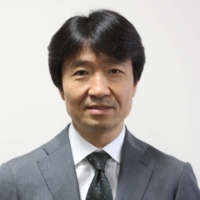
Kazuaki Tohyama
Nihon Kogakuin College
URL: http://ncie.neec.ac.jp/en/
Ideal education in ideal environment
We have worked to provide specialized yet comprehensive education, striving to develop talented graduates with practical skills. Founded in 1947, our school has produced creative individuals under the motto, “ideal education in an ideal environment.” We provide an optimum environment for imbuing individuals with not just knowledge, but also creativity. Foreign nationals are expected to play an important role in Japan. We aim to ensure they feel secure studying with their Japanese counterparts.

Aoyama Gakuin University
URL: https://www.aoyama.ac.jp/en/
For all people and for society
AGU provides support for international students such as the advisor/tutor system giving each freshman academic and everyday life support. Several scholarships are available. The Career Planning and Placement Center has specific staff for international students to support job-seeking. Students can also act as chat leaders in the Chat Room, communicating in foreign languages about various topics with students of Aoyama Gakuin from elementary to university.
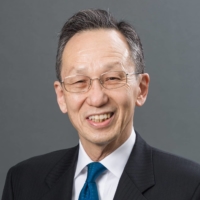
Hisashi Fujihara
Kindai University
URL: https://www.kindai.ac.jp/english/
Learning for the real world
Kindai University is one of the largest universities in western Japan. Our founding principles are “learning for the real world” and “nurturing intellectual and emotional intelligence.” We have nearly 500 international students from 18 countries this academic year. Kindai has been highly evaluated globally, ranked between 801 and 1,000 in the Times Higher Education World University Rankings 2021. We strive to promote active globalization and expand enrollment of international students.
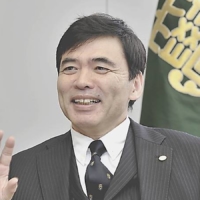
Masato Murakami
Shibaura Institute of Technology (SIT)
URL: https://www.shibaura-it.ac.jp/en/
Go abroad and see the world
The faculty and staff will make every effort to make your days at SIT prosperous and successful. At the same time, we hope you will spend your time being eager and enthusiastic. Do not underestimate your own potential. You may be surprised how much you can do when you really try. Don’t listen to discouraging advice and don’t give up easily. Keep your goal high.
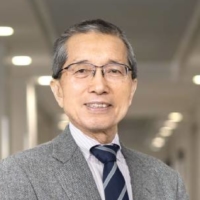
Takushoku University
URL: https://english.takushoku-u.ac.jp
Nurturing well-rounded people
Takushoku University, which marks its 120th anniversary this year, has ample experience in teaching Japanese to many international students. This past April, we launched the Department of Global Japanese Language in the Faculty of Foreign Languages. Our focus is not just on teaching Japanese and specialized knowledge, but also on providing career education, including business Japanese. This academic year, we will introduce a new entrance examination system for international students.
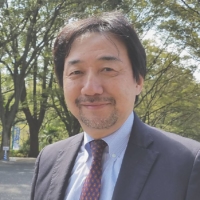
Tokai University
URL: https://www.u-tokai.ac.jp/english/
Think Ahead, Act for Humanity
Tokai University, enrolling 1,247 international students from 47 countries as of May 1, provides various support for international students, including advice on academics and career, health consultation, tutoring system and scholarship. It also promotes international exchanges in academics, culture and sports. We aim to earn the reputation as an excellent international university and continue to educate our students to be globally skilled individuals.
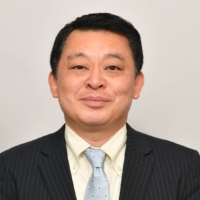
Tokyo Denki University
URL: https://www.dendai.ac.jp/en/
Giving to society via technology
To contribute to society through technology, individuals must not only acquire specialist knowledge, but also have strong language skills, be able to process their thoughts and be articulate. Tokyo Denki University offers international students a regular curriculum to acquire “academic Japanese” to help them gain knowledge and conduct scientific and technological research. Rich extracurricular activities encourage students to interact with diverse people and help them become engineers who can work collaboratively with others.
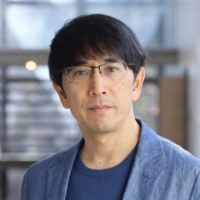
Tokyo Metropolitan University
URL: https://www.tmu.ac.jp/english/index.html
Pursue an ideal state of humanity
TMU, as the only public university of the Tokyo Metropolis, offers quality education based on research prowess with rich academic resources in Tokyo. We have seven faculties and seven graduate schools that provide international students with an ideal study environment. Almost all international students are granted tuition waivers and scholarships. We look forward to welcoming you!
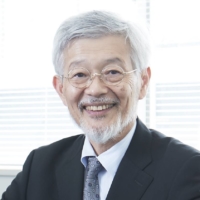
Masato Wakayama
Tokyo University of Science
URL: https://www.tus.ac.jp/en/
Studies that lead to employment
Since its founding in 1881, the Tokyo University of Science has stuck to a policy of providing competency-first education in which only students who have acquired true competency can graduate — a major feature of the university. To support international students, we provide freshman-specific guidance, assign a senior student as adviser to each international student, help students maintain their residency in Japan and operate an international student dormitory.
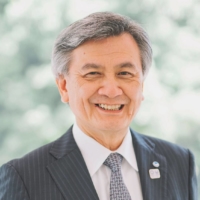
Yokohama National University
URL: https://www.ynu.ac.jp/english/
Be active, innovative, open, global
Yokohama National University, where international students account for 10% of its entire 10,000-student enrollment, offers a variety of services for non-Japanese students. These include scholarships arranged by Yokohama National University, four dormitories mainly for international students, support for job hunting at Japanese companies, consultation on daily life, studies and job hunting in collaboration with various organizations and student groups, as well as support on Japanese language and culture.
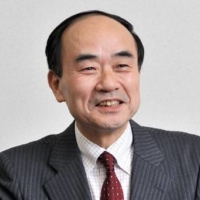
University of Marketing and Distribution Sciences
URL: http://global.umds.ac.jp/english/
We train students for business
We offer many study programs closely connected to the business world to prepare you as a business professional. First-year students are assigned to classes with faculty members in charge. Also, there is a specialized support section for international students to receive advice on study, life in Japan, and employment. Almost all international students receive scholarships and reduced tuition rates upon enrollment. Many scholarships and tuition remission programs are available for sophomores and above, based on the previous year’s grades.




